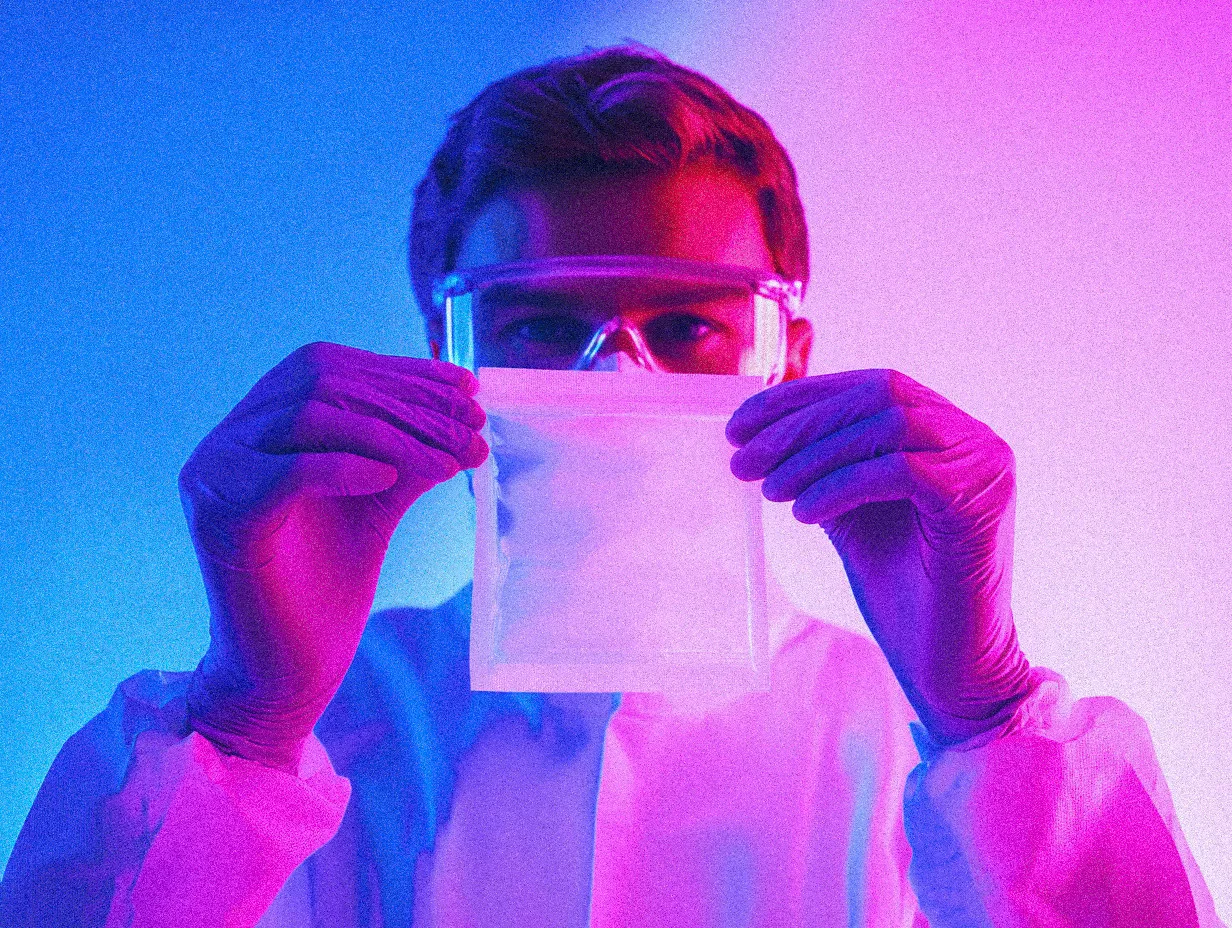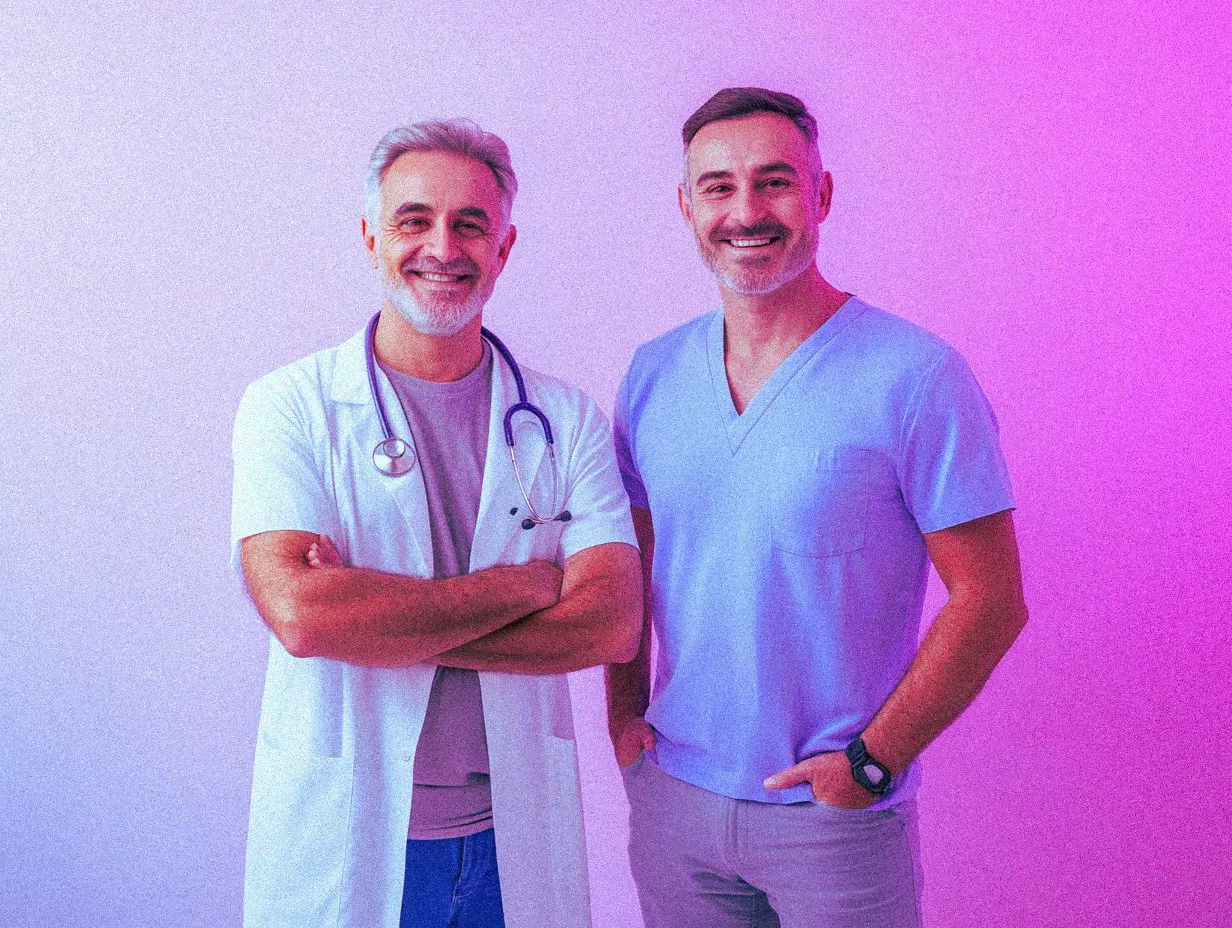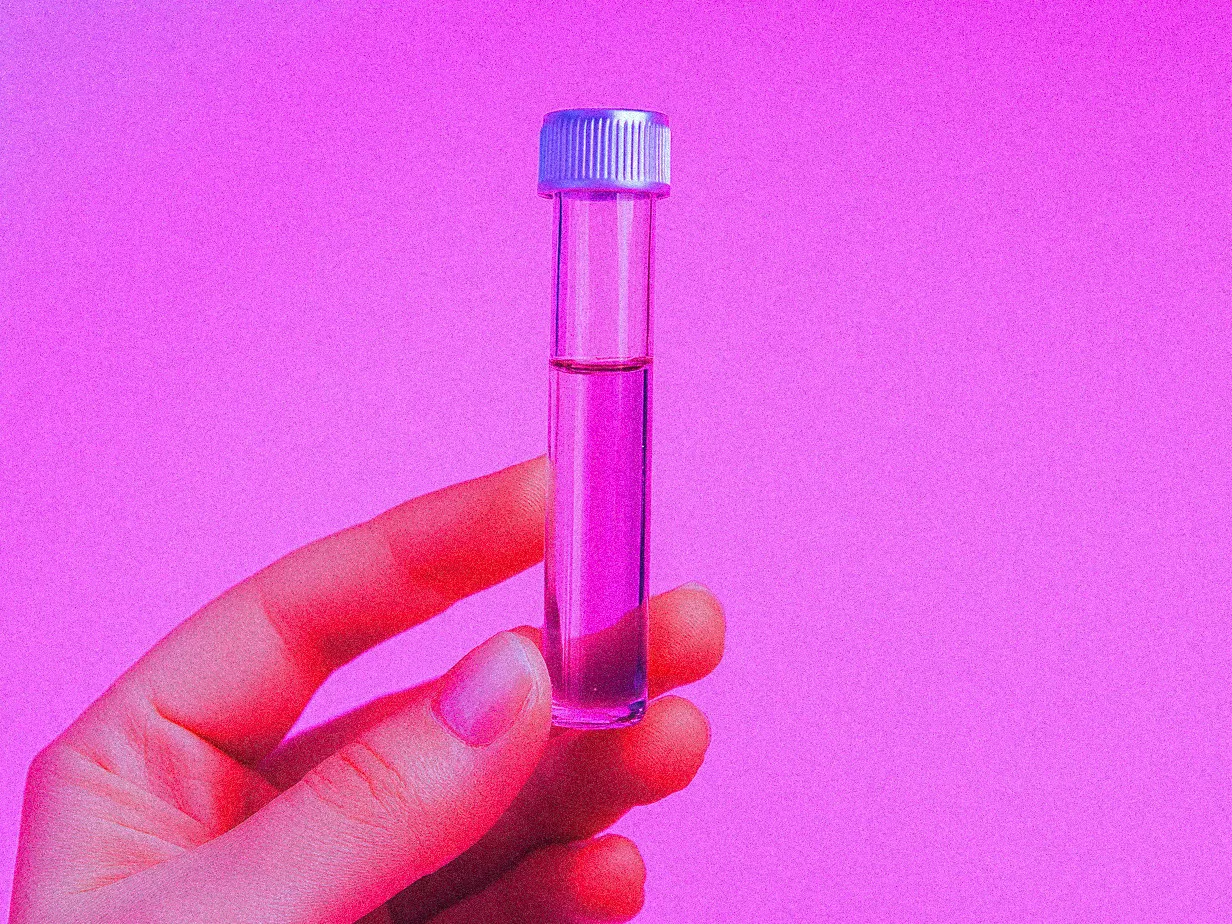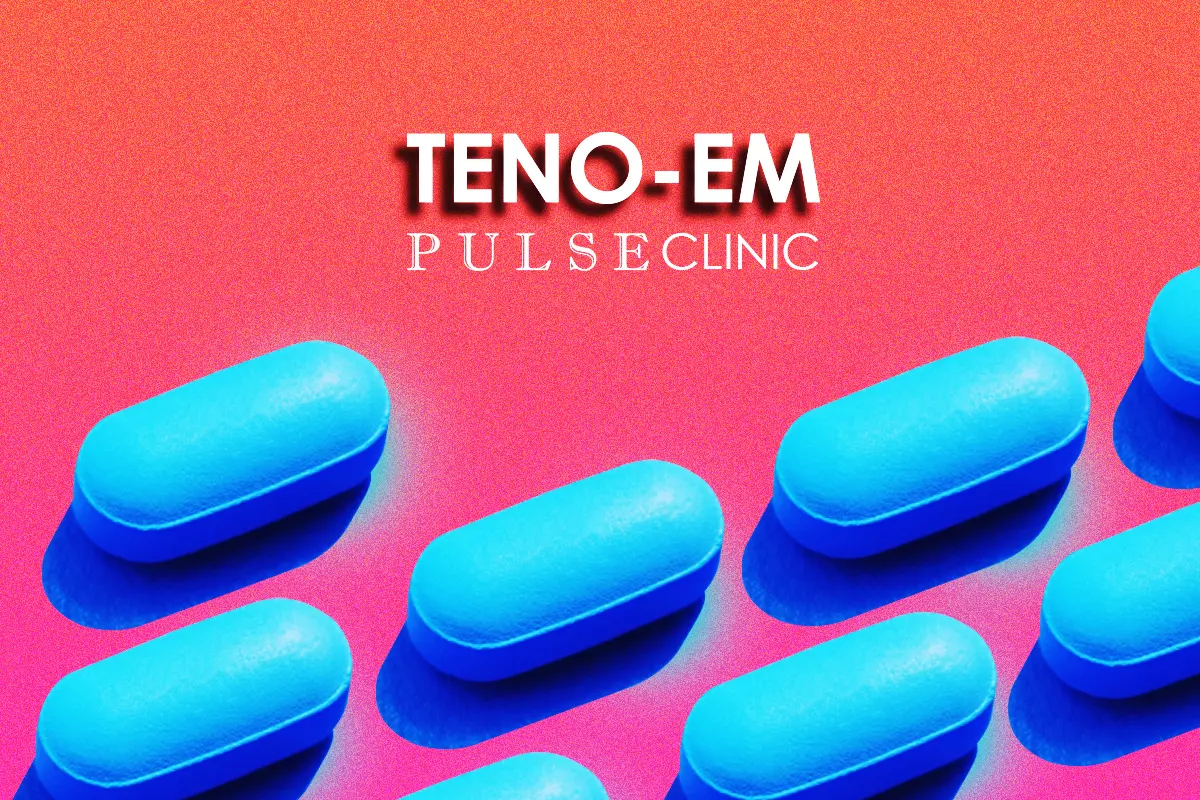Sexually Transmitted Diseases (STDs) in Thailand 2025
86525
STDs in Thailand 2025, what STDs are common in Thailand and tips to avoid STDs in Thailand

Sexually Transmitted Diseases (STDs) in Thailand 2025
- Bacterial infections: This type of infections are caused by bacteria. Bacterial STIs can usually be treated with a dose of antibiotics. This includes:
- Bacterial vaginosis
- Chlamydia
- Gonorrhea
- Lymphogranuloma venerum (LGV)
- syphilis
- chancroid
- Emerging STIs such as ureaplasma urealyticum, ureaplasma parvum, mycoplasma hominis, mycoplasma genitalium are also becoming more common.
- Viruses: Viral STIs are caused by viruses, which can be treatable in some cases. It is important to remember that some type of viral STIs can stay with you for life. However, taking the right medication can help mediate the symptoms, which help your body recover to a healthy state. Common viral STIs include:
- Genital herpes
- Hepatitis B and C
- Human Papillomavirus (HPV)
- Human Immunodeficiency Virus (HIV).
- Parasites are responsible for trichomoniasis and pubic lice. Trichomoniasis (or “trich”) is a very common sexually transmitted disease (STD). It is caused by infection with a protozoan parasite called Trichomonas vaginalis. Although symptoms of the disease vary, most people who have the parasite cannot tell if they are infected which occurs in both men and women. Parasitic STIs can usually be treated with a dose of antibiotics that can kill the parasite.
Since the 1960s (during the Vietnam War), it was established that Thailand (especially Bangkok and Pattaya) would be a place for rest for American soldiers and troops on leave. Prostitution became a growth industry in Thailand during the 1960s when 6 US military bases were installed along the borders of the country and rest-and-recreation programs arose. The topic of STDs is part of the medical briefs for every deployment. But in Thailand, where many troops in the relief effort are based, prostitution and the incidence of sexually transmitted diseases — including HIV — are among the highest in the world.
Later on in the 1980s, the soldiers were replaced by European, Australian, and Japanese tourists, 60% of whom acknowledged that sex at a low price was their motive for visiting Thailand. There is widespread concern about the effects of undetected and untreated gonorrhea, including infection of the fallopian tubes, high-risk pregnancies, female sterility, blindness in children, and systemic infection of future generations. The Ministry of Health has set up a gonorrhea control program aimed at improving the capacity of outlying small health centers to combat sexually transmitted diseases.
What are the Risks for STDs?
Travellers are at high risk of acquiring STIs if they have unprotected sex outside a monogamous relationship, engage in casual sex, or use the services of sex workers. During travel, some people may be less inclined to follow social mores dictating their behaviour back home and look for adventurous opportunities involving sex. Long-term travellers may also be at increased risk due to feelings of loneliness or being homesick.
Travellers should also be aware of sexual tourism and how it spreads STIs. Sexual tourism is travel for the procurement of sex abroad. Travellers participating in this type of exploitive tourism use the services of sex workers or children who are forced to engage in the trade as a result of deceptive practices or are part of human trafficking networks. It’s illegal in many countries, and you can be prosecuted in your home country for engaging in sexual exploitation of minors abroad. Sexual violence such as rape can also increase the risk of acquiring STIs.
What are the Symptoms of STDs?
In many cases, sexually transmitted infections can be transmitted unknowingly because a person can be asymptomatic – and does not exhibit symptoms.
- Read more about STD Asymptomatic Infections
- Read more about the Most Common Asymptomatic STD Infections
Depending on the infection, symptoms can appear within days or weeks (chlamydia, gonorrhea, genital herpes), weeks or months (Hepatitis B, HIV, syphilis) after exposure to the microorganism. Common symptoms, which may appear alone or in combination – include
- abnormal genital discharge
- unusual anal discharge
- sore throat
- burning sensation when urinating
- bleeding after intercourse or between periods
- rashes and sores in the genital or anal areas
- painful/painless rash, sore or ulcer on your skin
- swollen lymph glands in the groin area or under the jawline
- sudden fever or appearance of flu-like symptoms.
Note that the sudden or eventual disappearance of symptoms does not mean you are cured of the infection since it can return or manifest itself in different symptoms. Many sexually transmitted infections can be treated with antibiotics (although gonorrhea is becoming increasingly resistant to antibiotics) or antivirals. If left untreated, infections can lead to infertility, pelvic inflammatory disease, cancer, chronic liver conditions, pregnancy complications, and birth defects.
Where Can I Get Tested for STDs in Thailand
Contact us at info.bkk@pulse-clinic.com or chat on your preferred platform:
Add us on Line and stay in touch.
Sexually Transmitted Diseases in Thailand 2025
As of 2025, Thailand faces ongoing challenges regarding sexually transmitted diseases (STDs), particularly HIV/AIDS, gonorrhea, and syphilis. The country has made significant strides in awareness, prevention, and treatment programs, but issues remain, especially among vulnerable populations.
Current Situation of STD in Thailand
- HIV/AIDS: Thailand has a high prevalence of HIV, particularly among men who have sex with men (MSM) and sex workers. Although there have been advancements in antiretroviral therapy and pre-exposure prophylaxis (PrEP), stigma and limited access to healthcare continue to hinder progress.
- Gonorrhea and Syphilis: There has been an uptick in cases of gonorrhea and syphilis, particularly among young adults. The rise in antibiotic-resistant strains of gonorrhea poses a significant public health challenge.
- Awareness and Education: Increased efforts in sexual health education and condom promotion have been observed, but gaps in knowledge and access to services remain.
Predictions
- Continued Efforts in Prevention: Thailand will likely enhance its public health campaigns focusing on safe sex practices and increased testing. The integration of technology and mobile health applications may improve outreach and accessibility.
- Rise in Resistance: The trend of rising antibiotic-resistant STDs may lead to more complicated treatment regimens, making it crucial for healthcare providers to adapt.
- Impact of COVID-19: The long-term effects of the COVID-19 pandemic on healthcare access and priorities may continue to influence STD testing and treatment availability, particularly in rural areas.
- Targeted Interventions: There's a potential for more targeted interventions aimed at high-risk populations, including MSM and sex workers, which could help mitigate the spread of STDs.
Overall, while there are optimistic trends in prevention and treatment, ongoing efforts will be essential to address the existing challenges and improve public health outcomes in Thailand.
Chlamydia and Gonorrhea in Thailand
- Over the past ten years, there has been a consistent rise in cases of gonorrhea (GC) caused by Neisseria gonorrhoeae and chlamydia (CT) caused by chlamydia trachomatis in Thailand. The general population, including heterosexual men and women, as well as men who have sex with men (MSM), including bisexual and transgender individuals, face a heightened risk of contracting gonorrhea. The prevalence of both infections has increased in Thailand.
During medieval times, gonorrhea, which was then known as the clap, gained attention before its cause was understood. Nowadays, this bacterial infection is becoming more prevalent once again, primarily due to the increasing resistance to antibiotics. Gonorrhoea spreads easily through unprotected sex or the use of unclean sex toys. However, even when using protection like condoms, there is no guarantee of complete prevention due to the possibility of leakage. Additionally, the disease can be transmitted through oral sex, although less commonly, it can also affect the throat and eyes.
Similarly, chlamydial infection is a widespread sexually transmitted disease (STD). Like gonorrhea, it is easily transmitted through various forms of sexual activity such as unprotected sex, oral sex, and anal sex. It can even occur when there is contact between the genitals of you and your partner.
- According to a study conducted in 2019, it was found that 54.47% of individuals categorized as MSM (gay men, bisexuals, transgender individuals, and sex workers) tested positive for gonorrhea when a PCR DNA test was used. However, there were no positive results when a culture test was performed (indicating that doing a culture test for gonorrhea is not recommended as it would be a waste of money). The prevalence of gonorrhea in the male genital site was 34.73%, while anal and rectal gonorrhea was found in 29% of participants. Additionally, 28% of individuals tested positive for oropharyngeal gonorrhea (gonorrhea in the throat). Interestingly, 6% of participants were found to have gonococcal infection in all three anatomical sites (throat, anus, and urethra).
- For comparison, the prevalence of chlamydia in the USA is at 539.3 per 100,000 people, and gonorrhea in the USA is at 179.1 per 100,000 people.
How to Get Tested for Chlamydia, Gonorrhea, and Other Infections That Can Cause Discharge in Your Penis, Throat, and Anus?
In 2023, the most effective method for screening and detecting infections such as gonorrhea, chlamydia, and others is the PCR DNA test. Unlike older methods like antibody tests or culture tests, the PCR DNA test is considered the superior choice. Typically conducted in research centers and medical schools, this test offers reliable and accurate results for the detection of these infections.
- To conduct an oropharyngeal (throat) swab, the procedure involves pushing the tongue downwards using a spatula or securing it with fingers and gauze. The swab is then used to wipe the back wall of the throat and the tonsils, ensuring that an ample amount of cells are collected from the mucosal surface. It is important to avoid contact with the mucous membranes of the cheek or tongue to obtain a sufficient sample from the throat. Afterward, the swab is cut with scissors, leaving approximately 1-2 cm of the nylon head, and placed into a sample tube.
- The rectal swab procedure involved inserting a sterile swab into the anal canal, typically around 1 to 1.5 inches deep. The swab was moved from side to side within the anal canal to collect samples from the crypts. Afterward, the swab was left in place for 10 to 30 seconds to allow the organisms to be absorbed onto the swab.
- For urine test, you will be provided with containers that are designed to prevent leakage for collecting urine specimens. In order to enhance the likelihood of detecting the organisms, it is recommended to collect swab samples from participants who have refrained from urinating for a minimum of two hours. All samples underwent testing using NAAT PCR DNA tests. However, it is advised not to use urine specimens for gonorrhea culture as they have low sensitivity in detecting the infection.
- To detect the presence of N. gonorrhea and chlamydia, it is preferable to use a urethral swab to collect discharge from the meatus. If there is no discharge present in postpubertal males, an endo urethral swab can be used instead to detect gonococci and chlamydia. To maximize the likelihood of detecting these organisms, it is recommended to collect swab samples from participants who have refrained from urinating for at least 2 hours before the collection.
The detection and diagnosis of sexually transmitted diseases (STDs) among individuals engaging in high-risk sexual behaviors have important implications for public health. If these individuals and their partners continue to engage in risky behaviors, such as inconsistent condom use with multiple partners, there is a higher likelihood of STD and HIV transmission. Therefore, it is crucial to implement regular screening for STDs, regardless of whether individuals exhibit symptoms or not. This proactive approach enables early detection and ensures appropriate treatment, aiming to prevent the further spread of infections.
Most People with Chlamydia and Gonorrhea Do Not Have Any Symptoms.
Chlamydia is known as a 'silent' infection because most infected people are asymptomatic and lack abnormal physical examination findings. Researchers are informing that up to 80% of patients with chlamydia are asymptomatic. Many people with gonorrhea are asymptomatic, which means they don't show any symptoms of infection. If there are symptoms, they typically show in two days to five days in males, with a possible range of one to 30 days. In females, symptoms develop within 10 days of infection. Untreated gonorrhea can result in serious illness and complications, such as infertility in women, pregnancy complications, and blindness for babies who get infected during birth.
What About the Symptoms?
For gonorrhea, if symptoms appear, they include a thin watery yellow, or green discharge and painful urination – usually within 2 weeks or longer. However, around 1 in 10 infected men and almost half of infected women do not experience any symptoms. If chlamydia does announce itself to its host, the symptoms include pain during urination or an unusual discharge within one to three weeks after being contracted. Often, the symptoms subside until the disease reaches an advanced stage, when it begins to cause inflammation and severe pain which, if not treated quickly, can make the person sterile. If left untreated, not only do you run the risk of being infertile, but you could find yourself some long-term health problems, including PID, and epididymal-orchitis (inflammation of the testicles). That is why it’s important to stay on top of your STI screenings.
Gonorrhea and Chlamydia are Treatable and Curable
Being diagnosed with gonorrhea may not have seemed so frightening because the illness could be cured by taking a single antibiotic injection or pill. Gonorrhoea is usually treated with a shot of antibiotic and a single antibiotic tablet, followed by a check-up a few weeks later to get the all-clear. For Chlamydia, a course of antibiotics should be prescribed and you should avoid having sex until you and your current sexual partner have finished the antibiotics. You can get treatment for gonorrhea and chlamydia at any PULSE CLINICS in Thailand.
Syphilis in Thailand? Do I Have to Worry About Getting Syphilis in Thailand?
- The fear that syphilis is said to have made a comeback is not just public paranoia. Based on Bangrak STIs Centre's figures, syphilis cases have reportedly increased significantly during the past four years. Per 100,000 population, only around 2-3 infected cases were reported in 2009. Fast-forward to 2023, Thailand saw almost 12 syphilis patients per 100,000 population. A sharp rise is mainly a result of not only unprotected sex but as we know condoms can not prevent syphilis from kissing or touching because syphilis can be transmitted through direct contact (people don't know that). So you must get tested before you come to Thailand when you arrive in Thailand, and before you leave Thailand to make sure you don't have any infections and not carrying any infections back to your home country.
- For comparison, the prevalence of syphilis in the United States was 35.3 per 100,000 people in 2017, according to the Centers for Disease Control and Prevention. And there were nearly 130,000 cases of syphilis in the U.S. in 2019, marking an increase of more than 70% since 2015. Perhaps not surprisingly, syphilis continues to make an alarming comeback in the United States too, as reported earlier this year by The New York Times. Between 2012 and 2016, the rate of the first and second stages of syphilis among American women increased by 111%.
- I was shocked to find that new diagnoses of syphilis have increased by 199% in the UK over the last ten years, with a rise from 2,646 new diagnoses in 2010, to 7,982 in 2019 which is a 10% increase from 2018. Males constitute 90% of cases with the rates highest amongst men who have sex with men (MSM) and often have co-infection with HIV.
Who Have the Highest Risk of Syphilis in Thailand
In Thailand, although syphilis can be found in people of all ages, now a very large number of cases are diagnosed among teens and men who have sex with men including bisexual people and transgender people. From 2013 to 2021, people aged between 15-24 -- which is high school up to university -- were most infected with sexually transmitted diseases, followed by those between 25-34, 35-44, and 45-54.
In Bangkok in 2021, Syphilis is diagnosed and treated almost every day sometimes with HIV and sometimes with LGV or other bacterial STIs, among younger patients and underprivileged patients. This reflects the truth that society falls short of awareness about protection against sexually transmitted diseases
Although syphilis can be deadly if left untreated, the infectious disease can easily be cured. Syphilis is caused by a bacteria called Treponema pallidum which is shaped like a spiral drill. Such a spiral shape allows it to easily burrow into the soft tissue of affected areas. Syphilis spreads mostly through sexual contact and also by direct contact with people who have chancre. The bacteria is at the base of the chancre and in bodily secretions such as semen, so the disease spreads from person to person via contact with fluids. Although syphilis and HIV/Aids are caused by different infectious agents, a person found to be infected with syphilis should also be screened for HIV/Aids and vice versa because both diseases spread through similar means and are often co-infected.
The incubation period of syphilis can range from 10 to 90 days, but the average is one month. The disease starts in its first stage as a painless sore called a chancre -- mostly on the genitals and rectum. In cases that involve oral sex, the sore can be found in the mouth and the throat. But at PULSE CLINICS we have seen and diagnosed primary syphilis chancre sore on the nose, fingers, the back of the hand, urethra, and tongue.
Many people infected with the syphilis bacteria do not notice the chancre because it is usually painless. The chancre can heal on its own within three to six weeks even without treatment, though that doesn't mean the bacteria has completely gone away.
The second stage of syphilis usually starts within six months after being infected where symptoms spread to other parts of the body. In this stage, a rash develops mostly on the trunk, arms, and legs before it eventually covers the entire body. The rash is usually not itchy. Although secondary syphilis is the stage where the bacteria is at its highest and where the infection is highly contagious, all the symptoms can go away on their own even without treatment.
Although the first and second stages of Syphillis might look like it can go away on its own, the bacteria is still hidden inside the body and the risk of contagion is still high. Even if the symptoms of syphilis cleared up, you might be able to pass it on to your sexual partners.
Some unlucky patients move to the third stage of syphilis where the disease can potentially damage two major systems: the nervous system and the coronary artery system. Patients in this late stage are likely to fall prey to the inflammation of membranes surrounding the spinal cord, brain deterioration, the inflammation of the blood vessels, and lumps in the internal organs or on the face, among other symptoms. Tertiary syphilis can be fatal.
According to data from the US Centers for Disease Control and Prevention, syphilis can invade the nervous system at any stage of infection and causes a wide range of symptoms, including headache, altered behavior, difficulty coordinating muscle movements, paralysis, sensory deficits, and dementia. The disease can also attack the eye structure, which eventually brings about vision changes, decreased visual acuity, and permanent blindness.
Treatments for Syphilis in Thailand
Thailand has seen positive progress when it comes to treating syphilis, and medication is inexpensive.
The first and second stages of syphilis can be cured only with a single shot of penicillin," the specialist added. "The latent stage requires three shots. In worse cases where the infection spreads to the brain or coronary artery system, patients need intravenous treatments for two weeks.
The third stage of syphilis is hardly found these days primarily because the bacteria is somehow purged by antibiotics people take earlier for other kinds of infection such as urinary tract or lung infection.
Syphilis can be easily treated with a simple dose of medicine when detteced early. STD clinics in Thailand are capable of accurate testing and effective treatments for syphilis. Get tested and treated for syphilis today before it develops in to later stage, which could make it more difficult to get rid of.
Syphilis Prevention in Thailand
There is no vaccine for syphilis as of now. The most important preventive measure is to not have sex with people you don't know if they have syphilis or not but it is difficult to do. Protected sex using condoms is equally paramount. Condoms can offer almost 100% protection if used correctly but still, condoms can not prevent syphilis by 100% because it can be transmitted by direct contact as mentioned.
A new kind of preventive method called DoxyPEP which involves taking a dose of antibiotics before having sex. The CDC reports that there were fewer new syphilis cases in 2023 after nearly a decade of steep increases, coinciding with the widespread use of DoxyPEP among men who have sex with men.
Early detection and treatment are still key. You can come to PULSE CLINIC and PULSExpress walk-in laboratory to get tested any time and day. PULSE CLINICS and PULSExpress CLINIC are open 7 days a week, 365 days a year.
The Obstacles of Syphilis Treatment and Prevention in Thailand
Given today's medical advancements, treatment is not a big headache when it comes to the staggering rise of syphilis cases in Thailand. The real pain is actually how the sharp increase reflects something terrible in our society.
But the real message from the rising number of syphilis cases is the fact that people severely fall short of awareness when it comes to protection. It's not just syphilis that matters but also HIV/Aids and other sexually transmitted diseases that could come as a package. The surge in syphilis cases has come to warn us it's about time Thailand takes public awareness of protected sex more seriously.
Stigma and discrimination also pays important role that preventing people from getting tested or telling their partners to go and get tested and treated.
HIV in Thailand: Do I Have to Worry About Getting HIV in Thailand?
HIV is a virus that attacks the immune system and weakens your ability to fight everyday infections and diseases. AIDS, the full-blown manifestation of the chronic virus HIV, is one of the deadliest diseases to have affected man in recent history. It can be passed from one person to another through sexual contamination.
The first cases of HIV/AIDS were reported in 1984, more than 30 years on the World Health Organization put the number of deaths from the pandemic at 36 million worldwide. In 1987, there were 8 AIDS cases and 112 HIV-positive cases, most of whom were gay males (50% foreigners). It took just a few months for about 100,000 IV drug users to be HIV infected. In one year, the HIV infection rate among prostitutes in Chiang Rai Province jumped from 1 to 37%. HIV/AIDS reached all population groups by 2000.
HIV in Thailand
FACT: Thailand has one of the highest rates of HIV in Asia (estimated in 2016 at 450,000 out of a population of 70 million), with 1.1% adult HIV prevalence- the highest in the AEC region. HIV mostly affects sex workers, men who have sex with men, transgender people, and people who inject drugs.
The Prevalence of HIV in Thailand
The prevalence rate of HIV in Bangkok among men who have sex with men (MSM) including bisexuals and transgenders is 33% and among female sex workers, this stands at 10%.
The Nature of HIV Infection
HIV infection involves 3 phases:
- One or two months after incubation, HIV mimics a short-lived flu infection with a high fever, headaches, and cough.
- A ‘long silent period’ that has no symptoms and can last anywhere between 2 to 15 years. This can mean victims don’t realize they’re infected with HIV. This delay in diagnosis allows the disease to become more advanced and the virus progressively weakens the immune system by destroying some specific white blood cells.
- The resulting condition is AIDS when the CD4 count reaches lower than 200 cells/mm3 – in which several potentially life-threatening infections and illnesses occur. There is currently no cure for HIV, but there are some effective drug treatments that help to suppress the virus and can support a long and healthy life.
HIV Testing and Treatment in Thailand
HIV can now rapidly be diagnosed with blood and saliva tests within a few weeks or months of contact with an infected individual. It is now recommended by the Centers for disease control that people have an HIV screening in their annual health check-up. At PULSE CLINICs nationwide, you can do a rapid HIV test (which you will know the results in 15 minutes) with a basic HIV antibody test, HIV combo (Ag/Ab), and HIV PCR test, the HIV testing service can be an done anonymously. Read more about anonymous HIV testing. You can also buy an HIV home test kit to get tested for HIV at your place.
These days according to the latest national and international HIV treatment guidelines, HIV treatment is initiated the moment HIV is diagnosed, with antiviral drugs nowadays only one pill once a day, people living with HIV (PLHIV) can suppress the virus to an undetectable level, once the viral load is undetectable the PLHIV can not transmit HIV to anyone, the chance of transmission is ZERO.
HIV treatment is free for all Thai people in the medical facility they are registered in. Most PLHIV in Thailand get treatment and reach an undetectable viral load. PULSE CLINICS offers a full range of HIV medications and complete bi-annual HIV lab tests at affordable price, the service is called POZ&PROUD.
Contact us at info.bkk@pulse-clinic.com or chat on your preferred platform:
![]() +66 65 237 1936
+66 65 237 1936  @PULSEClinic
@PULSEClinic ![]() PulseClinic
PulseClinic
STD in Bangkok, Thailand
Welcome to Bangkok, the most visited city on earth for 5 consecutive years.
STDs are a major concern in Bangkok, Thailand, due to its bustling nightlife and attractions that attract both local and international visitors. Common STDs found in Bangkok include gonorrhea, chlamydia, syphilis, and HIV. Prevention efforts, such as consistent condom use, regular testing, and communication with partners, are crucial to reduce the risk of STD transmission. Public and private healthcare facilities in Bangkok offer STD testing and treatment services, including clinics, hospitals, and specialized STD clinics. Seeking professional medical advice is important for accurate diagnosis, appropriate treatment, and guidance on prevention measures.
STDs in Pattaya, Thailand
What is Pattaya and why is there so much concern about STDs in Pattaya in Thailand
Pattaya, the town nearest the troops’ base, is known in particular for its sex tourism. Although Thailand made major efforts to cap a spiraling HIV rate in the past decade — particularly among prostitutes — the prevalence rate for adults in the nation is twice that of the United States and 15 times higher than Japan and South Korea, according to the CIA World Factbook. Troops are reminded of those dangers in the pre-deployment briefings, medical briefings once they arrive, and daily unit briefings.
Travellers and expats should receive briefings too but since there's no one offering that, we're going to do that for you for your health and safety. There is a lot of news that "In Thailand, gonorrhea and chlamydia strains have developed that are more resistant to antibiotics than those in the States or the UK" but according to our years in providing treatment for urethritis from gonorrhea and non-gonococcal urethritis in Thailand, we haven't had a case with drug-resistant gonorrhea as the news said.
What are the chances of catching an STD (or STDs) in Pattaya?
Not surprisingly that’s an often asked question. Type “What are the chances of catching a sexually transmitted disease in Pattaya” into Google search and you will be rewarded with an array of answers on various forums and Question & Answer websites which in many cases give you wrong answers.
Do the basic math and common sense about the chance of getting an STD in Pattaya
There are websites that calculate for you, they state that a sex worker has slept with X amount of partners, his/her partners have slept with Y amount of sex workers, and those workers in turn have slept with Z amount of partners, and so on. Then they will calculate the odds of something like 1 out of every 10 sex workers you sleep with might have a sexually transmitted disease. If you statistically tried to work out the odds of catching an STD in Pattaya you would have many more factors to consider. Some of Pattaya’s sex workers might have sex with 3-10 customers per day. A sex tourist might sleep with several or many sex workers during his stay in Pattaya, think about it. That’s an awful lot of people having sex with an awful lot of people and probably in one big circle. The STD in someone's vagina or anus might be in your throat or penis without you knowing it like the water molecule from Cleopatra's pee in the Nile river might be in the air you breathe right now.
Soldiers, army, tourists, and sex tourists from every city in the world visit Pattaya. They may have already contracted a sexually transmitted infection at some sex tourism mecca before arriving in Pattaya and arriving in Pattaya during the incubation period, add that to the statistics and I’m sure you’ll agree the risk factor must multiply many times.
Do all the sex workers in Pattaya insist their clients wear a condom?
Not. For the bar girls or barboys, masseurs and the sex workers you (will) meet in either the club or from dating apps, many of them will allow you to have sex without a condom if you pay them extra, I can't recommend you to do it.
We have seen a lot of soldiers, tourists, and ex-pats falling in love with sex workers or people from the night club, having sex without condoms because they were falling in love and believing and trusting that they are all "safe". We have seen people with guilt and had to deal with guilt. I would like to highlight that trusting other persons by word of mouth will not protect you from HIV and STDs/STIs. Only when you get tested to make sure that both encounters do not have any STIs and you can use protection besides condoms such as PrEP and PEP.
Do all the sex workers in Pattaya go for regular STD checks?
There are many sex workers who we know for sure get tested regularly and take PrEP or HIV treatment and stay healthy with undetectable viral load and so can not pass on the HIV. Many sex workers do. But it is not mandatory in all bars and it doesn't matter if the sex workers in Pattaya catch an STD the same day after they got checked for STD, right?
So what do you suggest?
All things considered, I can safely say the best advice to any man visiting Pattaya, the largest playground for adulthood, for a little unadulterated fun is—don’t be a fool in paradise;
- Use protection such as Condoms, PrEP, PEP
- Get tested regularly (You should get yourself tested and also your sex workers - boys, girls, transgender, whatever)
- If you guys tested positive for anything, get treatment right away. And really, during the 7 days after treatment is not completed yet even though you are horny don't continue to fuck with other people because you might continue to spread the infections to other people.
- If you tested positive for anything and get treatment already, let all your sex partners know to get tested and treated too because if you are cured but they aren't and you fuck with them again, you can catch the STD from the person AGAIN.
STDs in Phuket, Thailand
Welcome to Phuket, the pearl of Asia. The paradise of sea, sand, sun, and sex.
Sexually transmitted diseases (STDs) are a concern in Phuket, Thailand, similar to other tourist destinations in the country. Phuket is known for its vibrant nightlife, including entertainment areas, go-go bars, and red-light districts, which can increase the risk of STD transmission.
Prevention and education efforts are crucial in combating STDs in Phuket. Practicing safe sex, including consistent condom use, regular testing, and open communication with partners, is important for reducing the risk of STD transmission.
Phuket has public and private healthcare facilities that offer STD testing and treatment services. These include clinics, hospitals, and specialized STD clinics. It is recommended to consult a healthcare professional for accurate diagnosis, appropriate treatment, and guidance on prevention measures.
It's essential to stay updated with current information on STDs in Phuket, as the prevalence and recommended prevention measures may change over time. Following safe sex practices and seeking medical attention when necessary can help protect against STDs while visiting or residing in Phuket.
Contact us at info.bkk@pulse-clinic.com or chat on your preferred platform:
![]() +66 65 237 1936
+66 65 237 1936  @PULSEClinic
@PULSEClinic ![]() PulseClinic
PulseClinic
STD Test price in Bangkok

If you are sexually active, you should get an STD test regularly.
PCR Multiplex DNA Test for 28 Infections
Our STD PCR Multiplex test offers advanced technology to detect up to 28 infections, including Gonorrhea, Chlamydia, Syphilis, Herpes Simplex, Trichomonas, and Candida strains, all in one test. It can identify infections in various anatomical areas, such as the throat, urethra, anorectal region, vagina, cervix, sperm, and skin lesions. For urethral infections, the Urine PCR is recommended, while the Throat Swab PCR is ideal after oral sex. Anal Swab PCR is advised for unprotected anal sex, and the Vaginal Swab PCR is recommended for vaginal sex, with staff guidance available for all tests.
| PCR for 28 Infections (STD Multiplex) | Online results | |||
| Same day** | Next day | 3 days | 7 days | |
| Throat | 17350 THB | 14490 THB | 13050 THB | 11350 THB |
| Urine | 17350 THB | 14490 THB | 13050 THB | 11350 THB |
| Anal Swab | 17350 THB | 14490 THB | 13050 THB | 11350 THB |
| Vaginal Swab | 17350 THB | 14490 THB | 13050 THB | 11350 THB |
| Cervical Swab | 17350 THB | 14490 THB | 13050 THB | 11350 THB |
| Sperm | 18390 THB | 15750 THB | 14200 THB | 12600 THB |
| Skin Lesion Swab | 17350 THB | 14490 THB | 13050 THB | 11350 THB |
| Pooling | 19450 THB | 16590 THB | 15150 THB | 13450 THB |
| PCR for 2 Infections (Gonorrhea/Chlamydia) | Same day | Next day | 3 days | 7 days |
| Throat | 5690 THB | 4990 THB | 3990 THB | 3300 THB |
| Urine | 5690 THB | 4990 THB | 3990 THB | 3300 THB |
| Vaginal and Cervical Swab | 5690 THB | 4990 THB | 3990 THB | 3300 THB |
| Rectal Swab | 5690 THB | 4990 THB | 3990 THB | 3300 THB |
| Sperm* | 6200 THB | 5150 THB | 4100 THB | 3690 THB |
| Skin lesion Swab | 5690 THB | 4990 THB | 3990 THB | 3300 THB |
All PULSE Clinics in Thailand provide the most comprehensive PCR Tests for 28 infections
to give you peace of mind and fast treatment
How Can I Prevent STDs While in Thailand?
Travelers and expats should take precautions to prevent STIs.
- Always practice safe sex – use a condom correctly and consistently or abstain from intercourse. If engaging in oral sex, use a male condom or dental dam. PrEP can prevent you from HIV and it has high efficacy at 99% to prevent HIV if you take it before having risks. If you had unprotected sex and want to be protected against HIV you can take PEP or Post-Exposure Prophylaxis.
- Pack male and/or female condoms. Note that condoms have high breakage rates, may be expired, or may have been stored in hot or humid places compromising their effectiveness. The condom failure rate is up to 20% and in some research, it is 30% so it is wise to learn about PrEP and PEP.
- Note that condoms are not fully effective for infections acquired through skin-to-skin contact like genital herpes, HPV warts, and syphilis.
- Birth control methods such as oral contraceptives, injections, IUDs, or diaphragms do not prevent STI transmission.
- Avoid behaviour that increases the risk of contracting an STI such as casual sex with a stranger or a sex worker. Drinking heavily or taking mind-altering drugs will impair judgment and inhibitions during a sexual encounter, increasing the risk of making unsafe choices like not using a condom.
- Avoid getting tattoos, body piercings. Also don’t share razors, toothbrushes, or needles.
- If you have engaged in risky sexual activities or suspect that you may have an STI, visit PULSE CLINIC immediately. If the results confirm that you have an STI, inform all your sex partners and encourage them to seek testing and medical attention.
Hepatitis B and Human Papillomavirus (HPV) can also be prevented through vaccination, available at PULSE CLINICS.
Note: Some countries continue to have entry restrictions for travelers with HIV / AIDS. Consult your destination country's embassy or consulate to get the latest information.
PrEP is a highly effective tool in reducing risk of HIV transmission. Start taking PrEP and stay safe today.

I Got an STD in Thailand, What Can I do? Where Do I Go in Thailand to Get It Sorted?
You should visit a doctor, a sexual health doctor in Thailand has seen a lot of cases and is not judgmental. PULSE CLINICS are experienced in sexual health and STDs and PULSE CLINICS are available throughout Bangkok and the country.
What Happens At PULSE Sexual Health Clinic?
Remember, a general health practitioner probably isn’t an expert and may only test you for the most common infections based on your age or your symptoms, or if you specifically request a particular test. A visit to our sexual health clinic is, therefore, a more sensible option because not only we have seen more cases, but we have diagnosed more STD cases too. At the clinic, a doctor or nurse will ask questions about your sex life and may need to examine your skin, throat, genitals, or anus.
We will then recommend the most appropriate tests for your situation. If a test reveals you have an STD, you must tell all of your sex partners and any ex-partners so they can get tested and treated too.
You might feel embarrassed but don’t worry, there’s no need to be – the staff at these clinics see all kinds of infections EVERY DAY. It’s our job and we won’t judge you. Remember, you're not the first and you won't be the last.
Contact us at info.bkk@pulse-clinic.com or chat on your preferred platform:
Trust PULSE CLINIC to take care of your health like other 45000 people from over 130 countries. We provide discreet professional service with high privacy. Here to help, not to judge.
Loading...
Clinic Locations
Loading...














